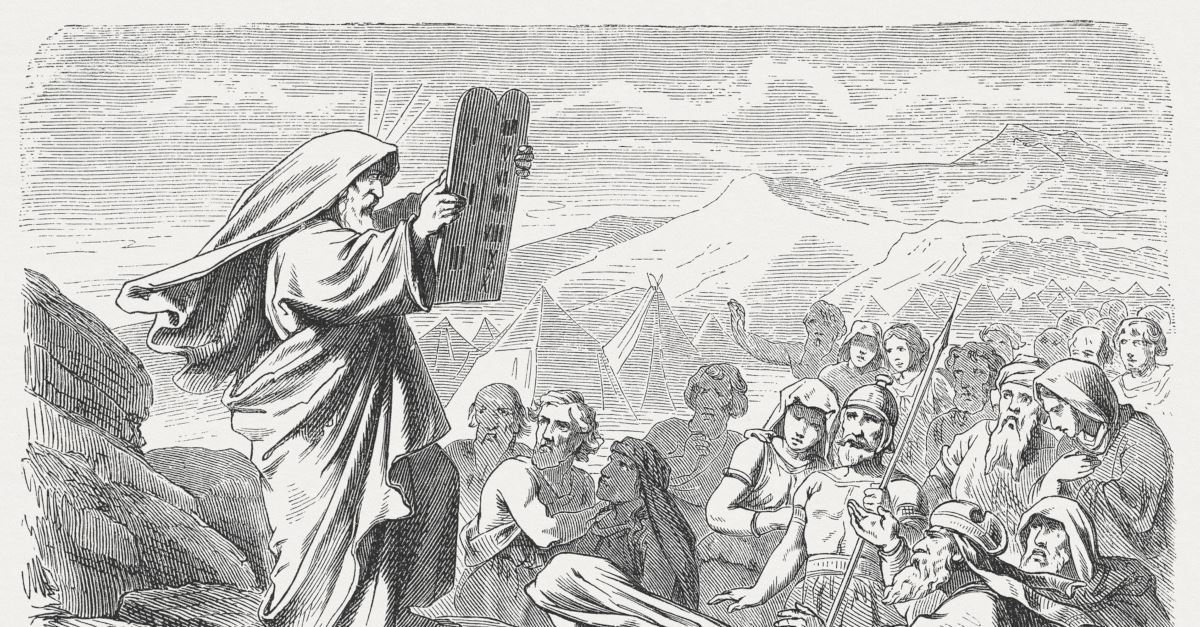Does "Thou Shalt Not Kill" Only Apply to Murder?

The Ten Commandments came down from God to the recently liberated Hebrews at Mount Sinai, showing them the basics of living as a godly people, a shining light on a hill for the world to look towards and see the way of the one true God. He began with the ten, and then elaborated more with the Levitical law.
Often, people look at these rules and believe they are easy to follow or can be selectively followed and ignored in certain circumstances. The sixth commandment is one that people feel they can avoid easily. However, God prioritized this law as one of the ten most important.
When God said, “You shall not murder” in Exodus 20:13, He meant no one could take the life of another. But Jesus clarified that one should not harbor hatred, murderous thoughts, or wicked feelings for a neighbor either.
Why Did God Send the 10 Commandments?
The Ten Commandments were the foundations of the Law that Israel would build itself on. As a nation, these rules were important because Israel was meant to show the world the way of the one, true God. The Bible says that, “The Lord was pleased, for his righteousness' sake, to magnify his law and make it glorious” (Isaiah 41:21). He chose to magnify His law through the descendants of Abraham, Isaac, and Jacob.
God also handed down the Ten Commandments so that no one could claim to be ignorant of right and wrong. Paul wrote to the Galatian church, “Now it is evident that no one is justified before God by the law, for ‘The righteous shall live by faith.’ But the law is not of faith, rather ‘The one who does them shall live by them’” (Galatians 3:11-12).
The law created an impossible standard for sinful individuals, highlighting the need for a Savior; “There is therefore now no condemnation for those who are in Christ Jesus. For the law of the Spirit of life has set you free in Christ Jesus from the law of sin and death” (Romans 8:1-2). The Holy Spirit helps those who have become disciples of Jesus Christ grow more like Jesus, becoming more righteous through their lives.
Where Does "Thou Shalt Not Kill" Command Appear?
Before their time in Egypt, the people who became the nation of Israel were tribal shepherd people. God brought them out of Egypt to make them a nation modeled after His rules and His ways, and “...a kingdom of priests and a holy nation” (Exodus 19:6b). When they gathered at Mount Sinai, God descended upon the mountain and gave Moses the basis of the laws the nation of Israel was to live by, with the first ten being carved into stone by God’s own finger.
While God handed down more laws on Mount Sinai, only the first ten were written in stone. The first four focus on man’s relationship with God, codifying the way man should interact with a Holy God. The last six deal with man’s interactions with other people. In a perfect world, the sixth commandment would be easy to follow, requiring that no one take the life of another.
What Does the Bible Say about Killing?
If this world was perfect, then it would be easy to follow the sixth commandment. But sin entered the world, making killing a part of life, and justice harder to enforce. The Book of Deuteronomy outlines the ways of upholding justice and obeying the law. One such moral complication is manslaughter, when someone accidentally kills another. God instituted Refugee Cities for the displaced, the dispossessed, and for those who have committed manslaughter:
“This is the provision for the manslayer, who by fleeing there may save his life. If anyone kills his neighbor unintentionally without having hated him in the past — as when someone goes into the forest with his neighbor to cut wood, and his hand swings the axe to cut down a tree, and the head slips from the handle and strikes his neighbor so that he dies — he may flee to one of these cities and live, lest the avenger of blood in hot anger pursue the manslayer and overtake him, because the way is long, and strike him fatally, though the man did not deserve to die, since he had not hated his neighbor in the past” (Deuteronomy 19:4-6).
Here, the law makes allowance for grace in the case of accidents. It is important to note that part of this allowance is the individual’s heart, with the provision in verse six being, “...he had not hated his neighbor in the past.” God sees the heart of each person, and asks the law to do it as much as possible. Such grace is not to be extended under man’s justice for the intentional killing of another person, with Old Testament law requiring, “then the elders of his city shall send and take him from there, and hand him over to the avenger of blood, so that he may die” (Deuteronomy 19:12). Life is sacred, and killing is a violation of the order God intended and must be dealt with.

Photo credit: ©Getty Images
In Biblically based approaches to the law, killing must be met with a firm hand of justice. The reason why God – and by extension the Law – takes this so seriously is because, “Whoever sheds the blood of man, by man shall his blood be shed, for God made man in his own image” (Genesis 9:6). God gave man body, soul, and a will, a level of conscience and awareness that means man can create, invent, build, and know right from wrong. God endowed man with a unique mark of His own nature, and every human bears that mark, meaning each person is loved uniquely by God. To dishonor that image is blasphemous before the Creator of that image.
Does This Verse Just Cover Murder?
For many, the control over their actions is enough to feel they have not violated the sixth commandment. Not taking a life is enough for some. When Jesus came, He clarified the law, teaching what God truly desired from His people. The Law did not just dictate what actions people should or should not take, but also what the condition of the heart ought to be.
The Lord wants people to be like Him, holy and righteous, which is an internal condition as much as it is external action. Of killing, Jesus said, “You have heard that it was said to those of old, ‘You shall not murder; and whoever murders will be liable to judgment.’ But I say to you that everyone who is angry with his brother will be liable to judgment; whoever insults his brother will be liable to the council; and whoever says, ‘You fool!’ will be liable to the hell of fire” (Matthew 5:21).
Hating one’s neighbor, harboring the feelings and thoughts that can lead to murder is sinful as well, and is failing to live up to the righteousness of Holy God. John the Beloved Apostle elaborated further on this internal state of sin, “Everyone who hates his brother is a murderer, and you know that no murderer has evil thoughts and intentions, even if they are not acted on, as sinful” (1 John 3:15).
Is Exodus 20:13 Still Relevant for Us Today?
Until the end of days, there will be death, murder, accidents, and hate in people’s hearts. Jesus came and released Christians from the burdens of the law, because He served as the final sacrifice in atonement for the sins of the world. But He also came to uphold and fulfill the law, including the Ten Commandments.
People struggle to live upright lives that line up with their values, set by the first ten rules. Understanding that “you shall not murder” is both refusing to take a life, and not to harbor hateful feelings toward others can serve as a reminder to cling to Jesus for peace. When there is division, rather than caving into malicious thoughts, vitriolic words, and violent actions, Christians should look to their Savior’s example, and remember that God is love.
Sources
Baxter, J. Sidlow. Explore the Book. Grand Rapids: Academie Books, 1960.
Ryrie, Charles C. Basic Theology. Chicago: Moody Press, 1999.
Wilmington, H.L. Wilmington’s Guide to the Bible. Wheaton: Tyndale House Publishers Inc., 1981.
Photo credit: ©Getty Images/fergregory
Bethany Verrett is a freelance writer who uses her passion for God, reading, and writing to glorify God. She and her husband have lived all over the country serving their Lord and Savior in ministry. She has a blog on graceandgrowing.com.
Originally published July 30, 2020.







